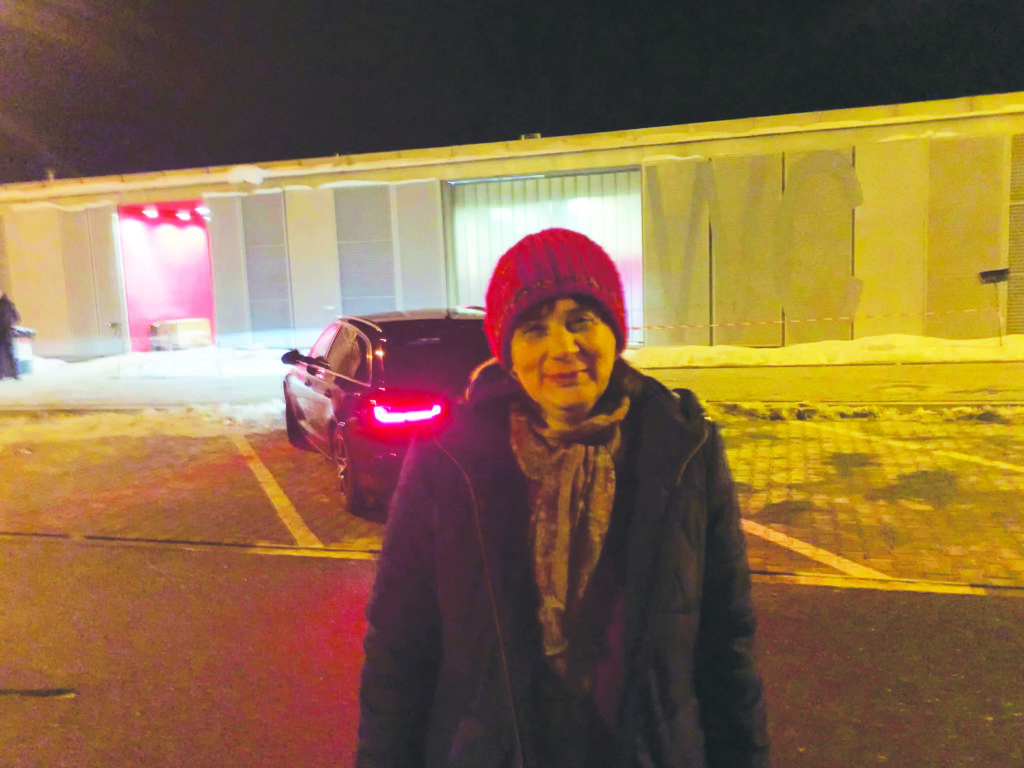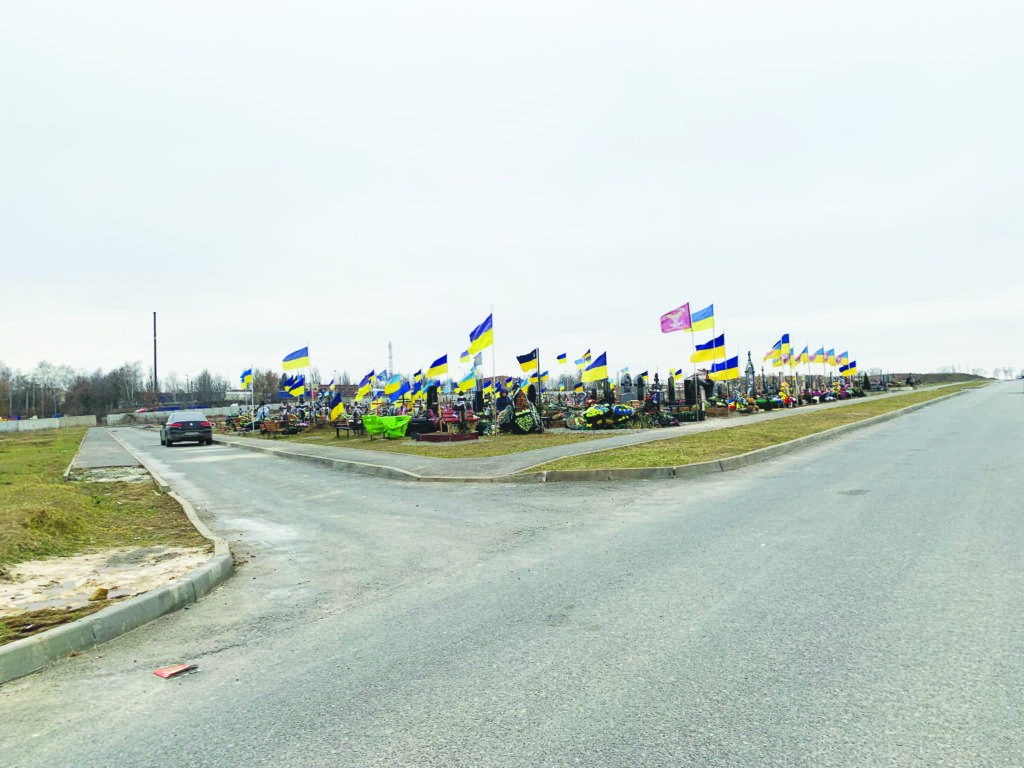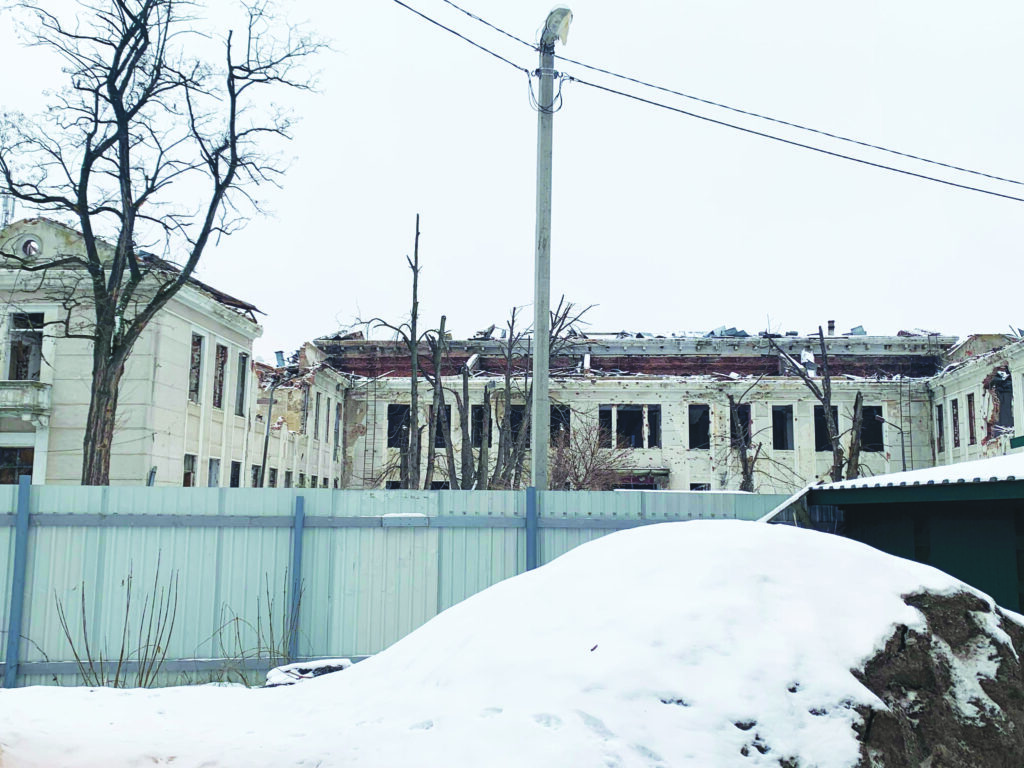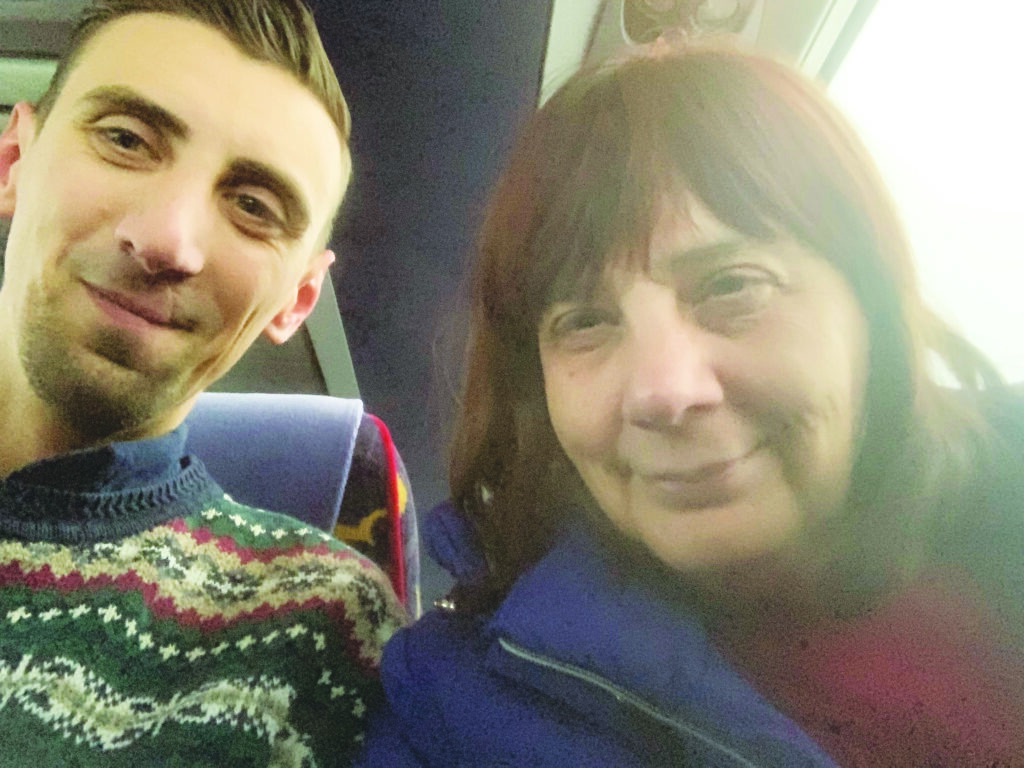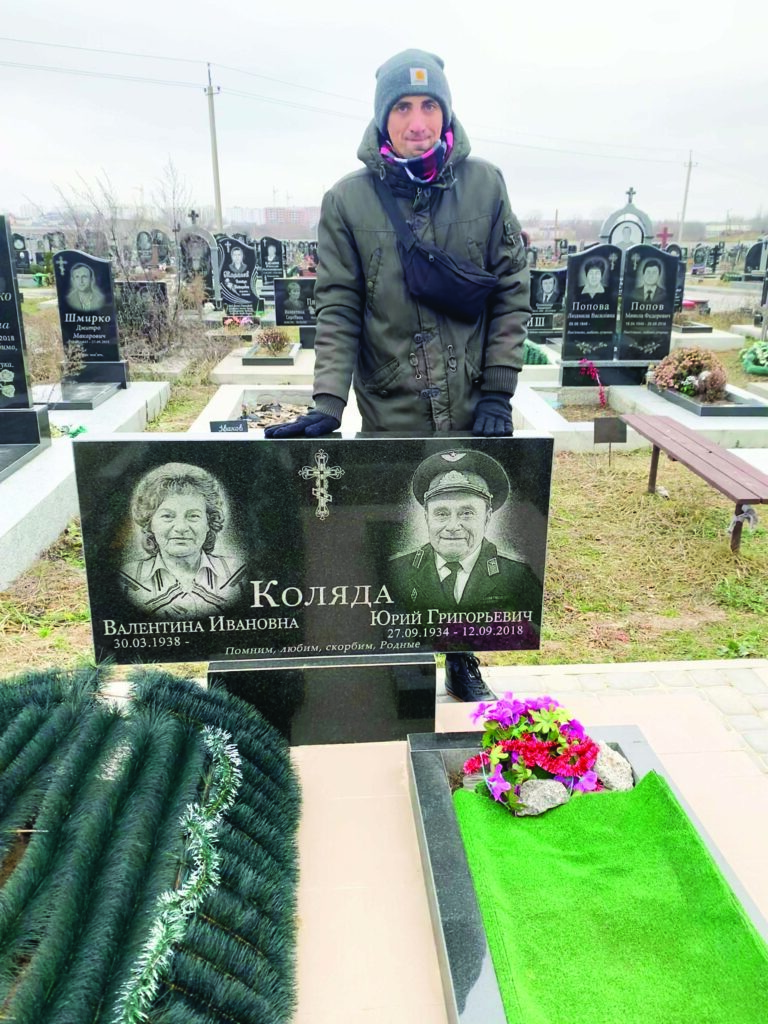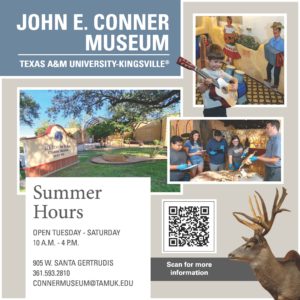Student rescues mother from Ukraine
When Inna Titova stepped out of the Houston airport in December, she was in awe of the clear blue skies overhead, the sight of nonmilitary planes in the air, and no sirens blaring the warning of incoming missiles.
After 10 months of living in war-torn Ukraine, Inna was safe.
Oleksandr Zhalkovskyi, a master student in the Communication Sciences and Disorders program at Texas A&M University-Kingsville, had one goal for the December holiday break – bring his mother to safety.
Oleksandr was born and raised in Ukraine and at the start of the war, his mother and grandmother remained in Ukraine, along with his cousins and several other family members.
“I just did not know what’s next and that’s probably what was the scariest emotion out of all the feelings that come to your mind,” he said.
In the late evening of Feb. 23 and early morning of Feb. 24, 2022, Oleksandr watched live as Russia announced its invasion of Ukraine, learning the war had started before most of his family living in Ukraine did.
“I thought that from daily conversations, daily phone calls and messages to my mother and other immediate family, I thought I had a pretty good idea of what daily living in the war time is like, but I realized not until I came there. I realized I had no idea what it’s like,” Oleksandr said.
After his grandmother passed away in August and the war encroached on his home city, Oleksandr tried to figure out a way to bring his mother out of Ukraine.
As Ukraine is a war zone, no commercial airlines fly over the country for safety reasons, meaning anyone interested in traveling to Ukraine must fly to a neighboring country and then journey on a bus into Ukraine.
Oleksandr flew to Poland and then began a 14-hour bus ride to Vinnytsia, his home city.
Each city’s entrances and exits have checkpoints and a large military presence, he said.
“From the same moment as I entered the borders of Ukraine, the air raid siren went off, which means there’s a threat of Russian missile bombing. When I finally got to my hometown the following morning, I woke up not to an alarm clock, not to sunshine but to the same sound, to the same siren,” he said.
The first time he heard the sirens blare, his heart raced.
“It was interesting. I got up [and] I had no idea what’s going on, so I was kind of lost and not sure what to do. So, I went to my mom and asked her ‘hey, what do [we do] the siren went off,’ and she said ‘well, we go have breakfast.’”
Oleksandr said in an ideal situation, people would wait the siren out in a basement or bomb shelter and explained that a long siren meant a Russian airstrike or threat was taking place. A short siren indicated the end of the threat, a sign to return from underground bunkers.
“People are so used to it, and unfortunately, I have to say they are so used to living in the war, which is a horrible thing. No one should be used to living in the war but unfortunately, they are after almost a year of living in it, and these conditions,” he said.
During his first morning in Ukraine, Oleksandr recalled the eerie sirens and video he took as he looked out the window to see a young boy walking outside with his backpack, unphased at the sirens that engrossed the city.
Ukrainian people have a lot of belief in their military, Oleksandr said.
Oleksandr’s last trip to Ukraine, was in 2018 when he took his daughter. He had not seen his mother since his return to Ukraine in December.
In a Zoom interview, Inna recalled the start of the war.
“At five in the morning there was lots of explosions and I didn’t know what it was, we didn’t understand what was happening. There was a message from President Volodymyr Zelenskyy, and then we finally understood it was the beginning of war,” said Inna, as translated by her son.
As the first sirens rang out across the country last February, Ukrainians initially did not know how to react. They then learned they could either go home, go to basements or seek bomb shelters.
“The first three days we had a lot of difficult stress. I couldn’t eat or sleep very well, lots of scary emotions,” she recalled.
Their days were marked long siren to short siren.
Many prominent areas of Oleksandr’s home city were destroyed.
“It’s good to have her in the safety of the United States. It’s interesting to hear some of the things she notices after living for 10 months in a country at war,” Oleksandr said.
One notable sight were the civilian planes at the airport.
“I hope that people who live here in the safety in the peaceful country, I hope they will not take their safety for granted and appreciate their clear sky above their heads and the protected sky above their heads,” he said.
Oleksandr continues to be an activist for Ukraine. Sharing his story and organizing rallies in support of Ukraine.
He has hopes to one day bring his children back to Ukraine. To not only share the places in which he grew up, but the places of destruction and to acknowledge the resilience of its people.


